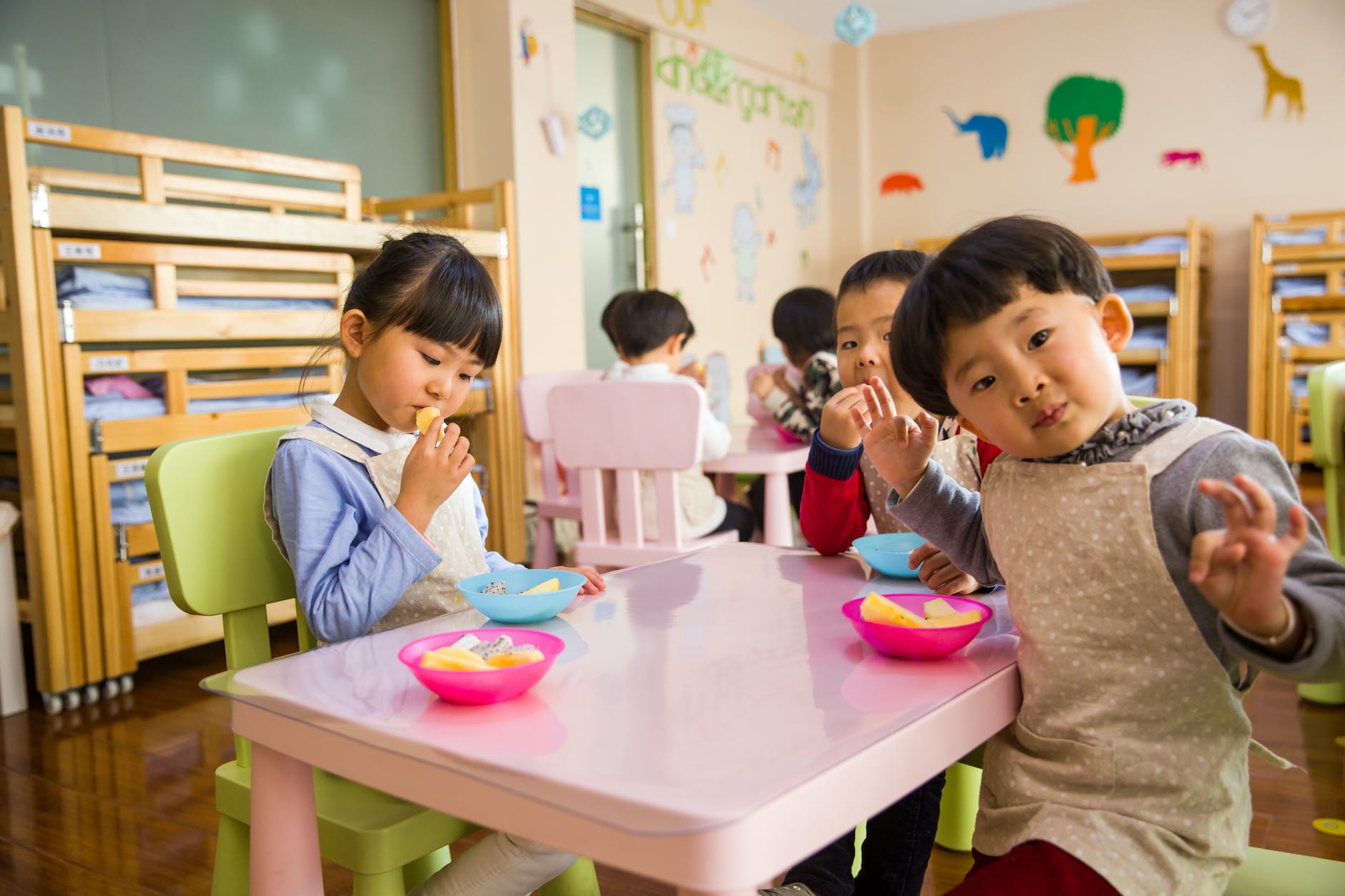
Photo by Naomi Shi on <a href="https://www.pexels.com/photo/three-toddler-eating-on-white-table-1001914/" rel="nofollow">Pexels.com</a>
Do you sometimes feel like you’re walking on eggshells when your child is around other people? It can be challenging to know what to do in social situations, especially for kids who are just starting to learn about them. Luckily, there are some things you can do to help teach your child the skills they need to navigate social situations successfully. This blog will discuss some of the most important social skills that children need to learn and provide tips for how you can help them develop these skills.
Important Social Skills Your Children Need To Learn:
Introducing Yourself:
One of the most essential social skills to learn is introducing yourself. Teaching your child how to greet people politely and confidently can make a big difference in how others perceive them. Show them proper body language and give them practice introducing themselves at home so that when they find themselves in unfamiliar social situations, they feel more confident.
Making Friends:
As children get older, making friends becomes an increasingly important part of their development. Helping your child understand what qualities make up a good friend will give them the tools they need to start making meaningful connections with other kids their age. Set aside time for play dates or activities where your child can meet new people and practice forming relationships with them.
Being Respectful:
Teaching your child to be respectful and kind to others is essential in any social situation. Show them how to listen, respond kindly, and give compliments when appropriate. Giving your child practice using these skills will help them feel more confident when talking with adults or other children.
Resolving Conflict:
Learning how to handle conflict constructively is key to navigating social situations successfully. Modeling the proper way to disagree respectfully, compromise, and negotiate can go a long way in helping your child learn the important skill of resolving conflicts with others.
Conversation Skills:
Developing conversation skills is an important part of learning how to interact with others socially. Helping your child understand the basics of conversation, such as asking questions, maintaining eye contact, and listening attentively, can help them become more successful in social situations.
Tips to Help Your Child Develop These Skills:
1. Spend Time Together:
One of the best things you can do to help your child develop their social skills is to spend time with them. Whether it’s going on a family outing or simply talking over dinner, spending quality time together gives your child an opportunity to practice communication and other critical social skills.
2. Talk It Out:
If your child encounters a difficult situation, encourage them to discuss it with you so they can work through it. Showing your support and offering advice will help strengthen their problem-solving abilities and create a stronger bond between you and your child.
3. Make It Fun:
Learning can be more enjoyable if it is presented as an adventure or game. Encourage your child to practice their social skills in fun ways, such as enrolling them in an ABCmouse course or playing a game of Charades. Doing this will make learning social skills less intimidating and more enjoyable for your child.
4. Model Good Behavior:
As the saying goes, “Actions speak louder than words”! Showing your children the right way to behave socially is essential for teaching them how to navigate social situations successfully. Demonstrate positive behavior yourself, such as being polite, respectful, and friendly when interacting with others.
Social situations can be intimidating and overwhelming, but with practice and guidance, your child can become more confident in their ability to make meaningful connections with others. In addition, taking the time to teach them essential social skills will help your children learn how to interact better with peers, adults, and other authority figures – a skill they’ll use for the rest of their lives.


